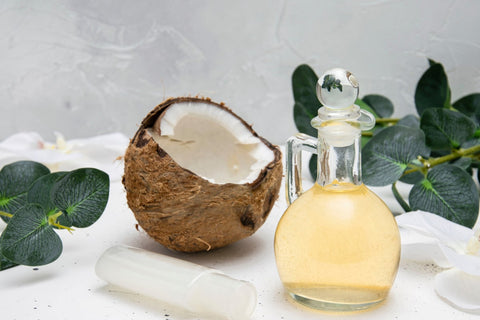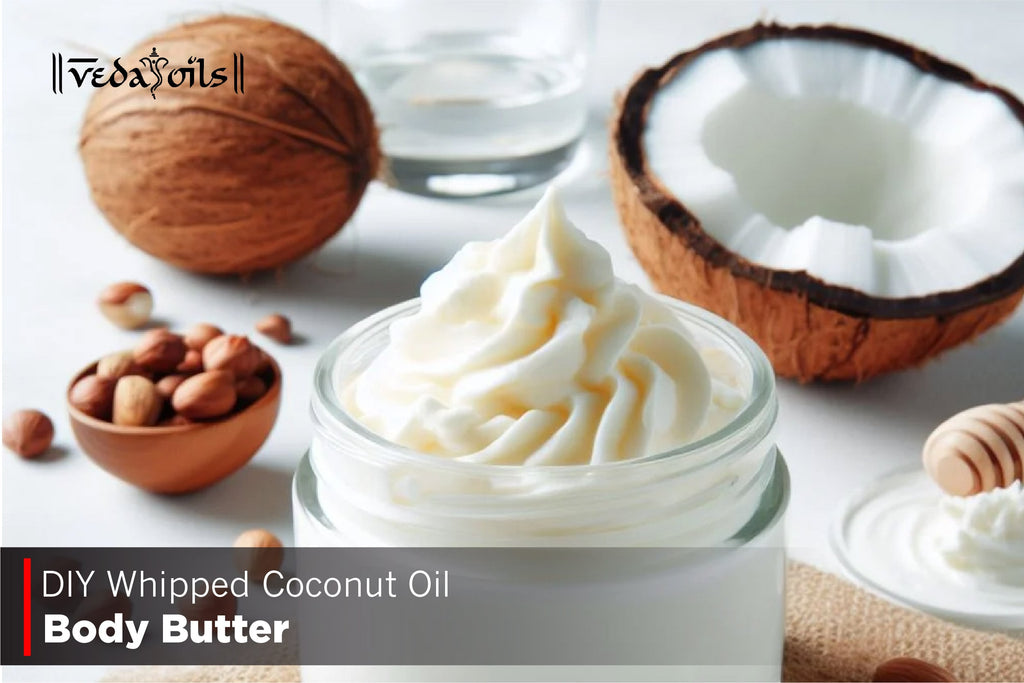Eczema is a lifelong medical disorder linked to the immune system. The person's age will determine the specific symptoms, but scaly and itchy skin patches are frequently present. So what is the most effective method of treating the symptoms? Cold-pressed virgin coconut oil has become very popular for treating the signs and symptoms of eczema.

In addition, because it gives the skin more Moisture, Coconut oil may help to prevent eczema. The Oil has beneficial fatty acids that reduce the likelihood of developing dry skin and Eczema. In particular, Virgin coconut oil could offer a protective barrier to the skin and aid in reducing Inflammation. Let's examine the benefits of Coconut Oil for Eczema and its application.
Benefits of Coconut Oil For Eczema
Virgin Coconut Oil has been used for centuries and for a good reason too. Not only is it a fantastic natural moisturizer and a good source of Antioxidants, but it also has additional uses for treating skin infections, dry skin, and eczema.
- Provide Hydration: Medium chain fatty acids, which are present in coconut oil, aid in lessening dryness and enable your skin to retain moisture. Numerous reasons cause our skin to lose moisture, and a weakened immune system makes it difficult to stay hydrated by drinking water. Regular use of coconut oil provides a barrier of protection, keeps the skin nourished, and locks in moisture.
- Offer Protection: Coconut Oil creates a barrier that shields skin from environmental toxins, grime, and other gross things you come into contact with daily. They are some of the main causes of skin infection, but coconut oil's barrier of protection ensures that it will protect your skin against viral and fungi infections. Its anti-microbial qualities also lessen Eczema and microorganisms. In case you have dry skin, this oil is super effective.

- Reduce Redness: Coconut Oil can aid in reducing any sudden outbreaks of transient redness by having a soothing, calming impact. In addition, anti-inflammatory elements found in coconut oil provide relief from itching and discomfort. Therefore, regular application of coconut oil to your skincare routine can provide long-lasting relief from the itching and pain associated with Eczema, and its antioxidants can heal various fungal infections in addition to Eczema.
- Antioxidants Properties: Coconut Oil for the face has antioxidant and phytonutrient (plant compound) components that can help you battle environmental stressors that hasten fungal infection and dermatitis and increase your nutrient factor. Eczema, psoriasis, and dermatitis can all be reduced because of coconut oil's anti-microbial characteristics, which also help with other fungal and viral disorders. To accelerate results, regularly consume coconut oil.
- Soothes Irritation: Coconut Oil can aid to ease any discomfort and offer calming relief if you're prone to irritations or sensitivity. Additionally, coconut oil might lessen skin inflammation, contributing to Eczema symptoms like rashes, itching, and redness. By preventing allergens from penetrating the skin's barrier and preserving skin moisture, it aids in reducing the likelihood of irritation and inflammation.
DIY Coconut Oil Recipes For Eczema
Although Coconut Oil can be applied straight to the skin to cure Eczema, it is more effective when coupled with other organic products. In addition, most of the components are already in your kitchen, which is fantastic news. Let's look at a few DIY Eczema Cream Recipes.
Recipe 1: Homemade Eczema Cream
This Homemade Eczema Cream is one of the simplest to create and only needs a few ingredients. It is packed with antioxidants and provides immediate relief from inflammation.

- Virgin Coconut Oil - ½ Cup
- Cocoa Butter - ½ Cup
- Honey - 1 Tablespoon
- Lavender Essential Oil - 30 Drops
Directions To Make:
Step 1: Fill the bottom half of your double boiler with water, about 4 centimeters worth. Raise the heat in the top portion of the double boiler or jar to melt and combine the cocoa butter and coconut oil.
Step 2: Once melted, add the honey and whisk it in. Add a few Drops of oil to make sure it's still liquid while allowing it to cool gently. Whip it with your mixer for a few minutes until it creates a lotion.
Step 3: If you live in a cold climate, store the lotion at room temperature to keep it supple. It might need to be refrigerated if you live somewhere with very warm temperatures.
Step 4: Once or twice a day, apply it to the afflicted skin, then wash your hands afterward.
Recipe 2: Coconut Oil Eczema Cream
Let's look at how to produce Coconut Oil Eczema Cream at home with just a few simple ingredients. This recipe functions as both a cream and a mild exfoliant.

- Oats Powder - 1/4 Cup
- Virgin Coconut Oil - 3/4 Cup
- Rosemary Essential Oil - 10 Drops
- Virgin Olive Oil - 1 Tablespoon
Directions To Make:
Step 1: Put Coconut Oil in a pan and heat it gently for 20 Seconds to melt it.
Step 2: Grounded Oats are combined with 10 drops of rosemary oil (or another choice of essential oil).
Step 3: Add Olive oil after removing it from the heat. To blend, stir.
Step 4: Place Ingredients in a little Glass Bowl and place in the refrigerator to set.
Step 5: Apply it to the affected Skin once or twice a day, then wash your hands. Keep it out of your Eyes.
Recipe 3: Shea Butter and Coconut Oil Eczema Cream
Shea Butter and Coconut Oil can be combined to make a wonderful Eczema Cream that offers incredible Moisturization and relief from Itching and Pain.

- Shea Butter - ½ Cup
- Virgin Coconut Oil - ½ Cup
- Raw Honey - 1 Tablespoon
- Lavender Essential Oil - 40 Drops
- Tea Tree Essential Oil - 5-10 Drops
Directions To Make:
Step 1: Use a double boiler or similar equipment to melt the shea butter and coconut oil until they are blended before starting to make your homemade eczema cream. The honey should then be added and let melt.
Step 2: Add the lavender and tea tree oils and swirl to blend after everything is liquid. Give your mixture a little time to cool down so it can start solidifying. The homemade eczema cream remedy can be stored in the refrigerator. Avoid freezing it because it will become very solid and require melting again.

Step 3: Give your solution a first round of mixing when it has thickened but is still liquid. Although a stand mixer would also work, prefer a hand-held mixer. mix for several minutes until the color has faded, and the mixture seems frothy. mix the solution approximately every ten minutes as it becomes more solid until it reaches its peak solid state.
Step 4: Add to the mason jar or another container after mixing one more. depending on how solid you want your homemade eczema cream to stay, you can keep it refrigerated or at room temperature. Apply it to the afflicted skin, then wash your hands. Maintain it away from your eyes.
Conclusion
One solution that might assist with eczema symptoms is virgin coconut oil. It offers qualities that can lessen dryness, itchiness, and inflammation. Coconut oil seeps into the skin and increases its moisture content. It is uncommon to develop an allergy to it, and can be used regularly as a moisturizer. Make sure to purchase 100 percent pure cold-pressed virgin coconut oil for your eczema treatment; visit VedaOils.com to make your purchase and receive savings.












 Sign in
Sign in Register now
Register now My Reward Points
My Reward Points









